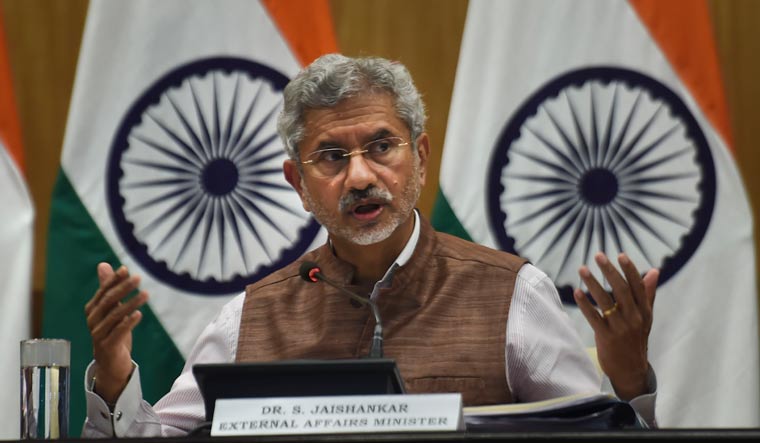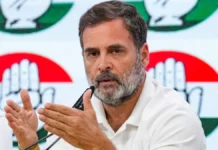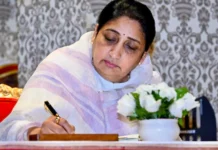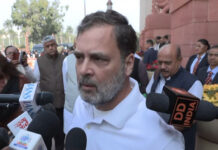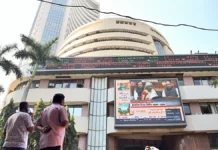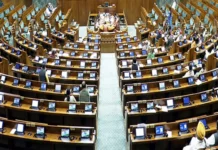NEW DELHI: Indo-US relations have been on an upward trajectory and are in a very good health, External Affairs Minister S Jaishankar said Tuesday, asserting that the “sharper edges” in trade ties which the media has reported will be addressed in the not so distant future.
Addressing the 100-day press conference of the Ministry of External Affairs, he said the “trajectory” of the relationship between India and the US has been “upwards” amid various administrations in Washington, be it George Bush, Barack Obama and now Donald Trump.
Responding to a question on commerce, he said the trade problem between the two countries is “normal”. Regarding trade relations, the minister was of the view that “it’s a glass 90 per cent full rather than 10 per cent empty”. “As relationship grows, there will be problems … the only way you don’t have trade problems is when you do not trade,” he said.
According to Jaishankar, the government had been engaging for months with the US to try and resolve some of the “sharper edges” in trade relations which the media has reported and they will be addressed in the not too distant future.
Prime Minister Narendra Modi will be visiting the US from September 21-27.
Jaishankar said in partnership with the Indian diaspora, Modi addressed events in San Jose in 2015 and Madison Square in New York in 2014, and the September 22 event at Houston will be the third.
He said the Indo-US relations are in very good health. “There is no facet of the relationship today which has not gone upward over the period of 20 years,” he said.
Referring to the decision of US President Donald Trump to attend the ‘Howdy Modi’ event, Jaishankar said, “I regard this as a great achievement of the Indo-US community.”
“If today there is an event of this size and you have someone like President Trump coming there, I think this shows where that community reached, how it is regarded in the US, the respect that it commands out there. In many ways I think it is obviously an achievement of the community,” he said.
“Having said that, the community stands more motivated, more inspired, more united by the fact that Narendra Modi is the prime minister. I have every expectation, having seen and participated in the earlier two events that this too would be extremely successful,” Jaishankar said.
Responding to a question on the message the presence of Trump at the Modi event will send to Pakistan, he said it is up to Islamabad to read.
“Country’s community develops a reputation. I think if I remember, it was in Herat (Afghanistan), the prime minister made that remark about Information Technology versus international terrorism. How both countries have reputation for IT, but IT means different things (for them).
“My sense is it is not just Pakistan whole world will be watching the Houston event and taking lessons about what Indian-Americans have achieved what India and the US –their state of the relationship today. I think there are multiple messages there. Obviously it is for Pakistanis to read what they read into it and I would say the same applies to other people in the world as well,” the External Affairs Minister said.
On the issue of US ban on oil imports from Iran, Jaishankar said the Indian side has had conversations with the Americans on the matter.
“Our interest is in affordable and predictable supply of energy. The situation is not a static one. There are a lot of conversations, a lot of moving parts to this issue, some of which surfaced on the G-7 meetings on the sidelines. So let’s see where it goes,” he said.
Talking about energy ties with Iran, Jaishankar said, “We are in dialogue will all suppliers, including Iran. I think the issues which have come up are not of our making, I think the Iranians understand that. So, we have to see whether the landscape changes and what are the possibilities thereafter hold.”
The remarks come at a time when the energy ties between India and Iran have taken a big hit due to the US ban on buying oil from Iran.
In November, the US had granted a six-month waiver to India, China, Greece, Italy, Taiwan, Japan, Turkey and South Korea to continue importing oil from Iran. The temporary waiver ended on May 2.
In May last year, the US had brought back sanctions on Iran after withdrawing from the Iran nuclear deal which was struck in 2015.
Responding to a question on a certain US Congressmen raising issue of rights in Kashmir, Jaishankar said they say a lot of things because people go to individual members, and say ‘you need to say this’.
He said he would be in Washington DC soon and if he gets to meet a member of Congress who raises these issues, he would ask their views on terrorism.
“I would ask them — you have confronted terrorism, what was your response ? You have confronted separatism, what was your response? Would you be impassive if affirmative action was not implemented?… What would you do if the laws of your country don’t apply to all parts of the country? Ask yourself the same questions and if after all that you have a point of view I will be happy to talk to you,” he said. PTI

